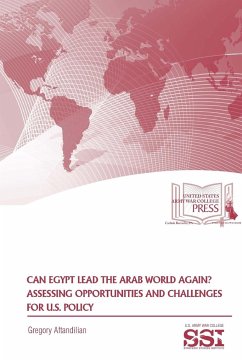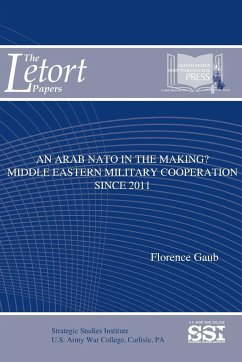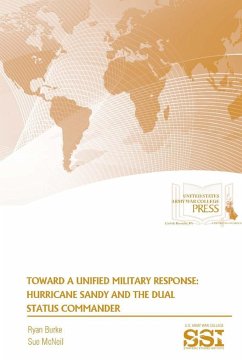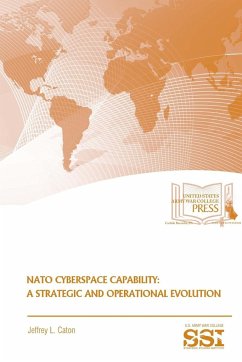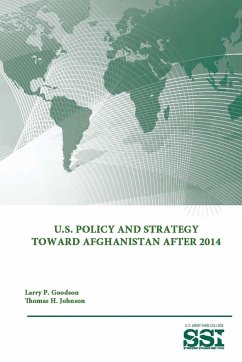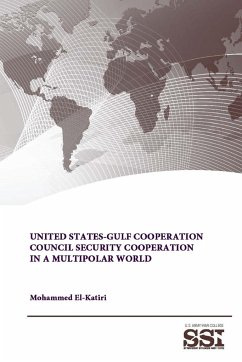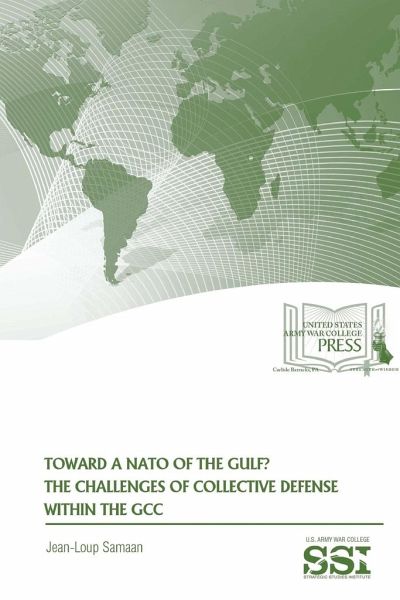
Toward A NATO of The Gulf? The Challenges of Collective Defense Within The GCC
Versandkostenfrei!
Versandfertig in 1-2 Wochen
16,99 €
inkl. MwSt.

PAYBACK Punkte
8 °P sammeln!
The stability of the Gulf remains a priority of U.S. national security interests. Because of its importance both politically and economically, the region is and should likely remain a critical area for U.S. Armed Forces in the near future. But if for a long time, the Gulf Arab kingdoms seemed to be passive actors of their own region¿leaving either Iran, Iraq, or Western powers to shape the power plays¿they now reached an unprecedented level of strategic ambition. As evidenced by their active diplomatic agendas in the Middle East and their increased military involvement in regional crises, th...
The stability of the Gulf remains a priority of U.S. national security interests. Because of its importance both politically and economically, the region is and should likely remain a critical area for U.S. Armed Forces in the near future. But if for a long time, the Gulf Arab kingdoms seemed to be passive actors of their own region¿leaving either Iran, Iraq, or Western powers to shape the power plays¿they now reached an unprecedented level of strategic ambition. As evidenced by their active diplomatic agendas in the Middle East and their increased military involvement in regional crises, the members of the Gulf Cooperation Council (GCC) are now players that matter. Does this mean that the GCC could become a credible regional organization enforcing collective security in the Peninsula? For years, this has been a dream that even the most optimistic planners of the U.S. Department of Defense considered distant, if not farfetched.



